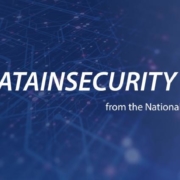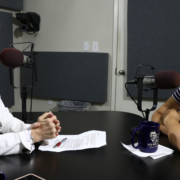Consumers for Safe CBD is working to protect, educate Americans
As America’s premier consumer advocacy organization, with a rich history of fighting to make the marketplace fair, safe, and healthy for consumers, NCL is hard at work on the most important issues in food and drug safety and to collaborate on improving consumer education.
In recent years, NCL has been observing the CBD, or cannabidiol, marketplace exploding, with products lining shelves of grocery stores, specialty shops—even gas stations. Products were appearing to make many claims or hint at miracle cures, and most consumers had no idea how or whether the products were being regulated. Who is making sure these tinctures, oils, gummies, and lotions are safe, and do they do what they claim?
This is why last year, NCL joined forces with the Consumer Federation of America and the Community Anti-Drug Coalitions of America, to create a national campaign called Consumers for Safe CBD.
NCL had identified a serious need for greater education among consumers about CBD, and that’s why Consumers for Safe CBD was created. Consumers for Safe CBD aims to help educate the public about the risks related to untested, unapproved CBD products on the market, champion the rights of consumers, and call on the U.S. Food and Drug Administration (FDA) and industry to do better to ensure safety and promote a pathway for new products through clinically tested scientific research.
“Cannabidiol, commonly referred to as CBD, is being used in a growing number of consumer products and is illegally sold in stores and on the Internet,” said NCL Executive Director Sally Greenberg. “We’re working to educate consumers and ensure accurate labeling, clear guidelines, and further research to protect against unknown and known risks of CBD products.”
NCL and its partners continue to raise awareness among consumers, policymakers, and regulators about the health risks associated with the unregulated CBD marketplace, in particular with the unproven health claims and often inaccurate labeling of products on the market today. Beyond the known health risks associated with unregulated CBD, there are a number of unscrupulous marketing tactics that prey on unsuspecting consumers. This includes false and dangerous claims that CBD has medical benefits that can prevent and stop the spread of the COVID-19.
By warning consumers about these false claims, participating in media interviews and publishing op-eds across the country, highlighting important research and reports, and sending letters to several retailers, state Attorneys General and Members of Congress, the campaign is working to protect consumers across the country from unapproved and potentially dangerous CBD products.
“We need to better understand the potential health benefits of CBD, but this can only be accomplished through clinical testing and scientifically validated methodologies,” said Greenberg. “We need the FDA to step up for consumers and for the public health.”
The time for action is now. CLICK HERE for more information about the Consumers for Safe CBD effort.


 By NCL Health Policy intern Talia Zitner
By NCL Health Policy intern Talia Zitner












